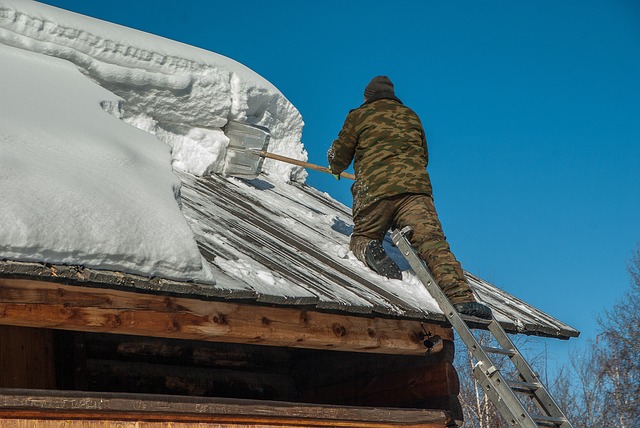In competitive commercial snow removal services, robust contracts are vital. They should address local regulations, weather, property types, and client needs, ensuring efficient, safe, and reliable service throughout the winter. Key contract components include defining work scope (plowing, salting, deicing), timing, liability (property damage, personal injury, ice accumulation risks), insurance (general liability, workers’ compensation, vehicle insurance), payment terms, and dispute resolution. Pricing models vary, catering to diverse needs: hourly rates for unpredictable weather or seasonal packages. Contracts should clearly outline services, areas covered, response times, maintenance, equipment replacements, payment terms, late fees, cancellation policies, work reviews, dispute handling, and change management, regularly updated per industry standards and legal requirements.
Crafting a robust commercial snow removal contract is vital for businesses looking to ensure smooth operations during winter. This guide navigates the complex landscape of commercial snow removal services, breaking down key components and legal considerations. From understanding pricing structures for commercial snow plowing to drafting a comprehensive contract, we equip you with insights to select the best service provider. Ensure your peace of mind this winter by fortifying your business against snowy challenges.
- Understanding the Commercial snow removal Landscape
- Key Components of a Comprehensive Contract
- Legal Considerations and Insurance Requirements
- Pricing Structures for Commercial Snow Plowing Services
- Drafting and Reviewing the Contract with Your Company
Understanding the Commercial Snow Removal Landscape

In the competitive world of commercial snow removal services, companies must navigate a dynamic landscape where customer expectations and safety standards are paramount. A robust contract is the cornerstone of any successful commercial snow removal company, setting clear terms and conditions to protect both the business and its clients. Effective contracts for commercial snow plowing services should encompass a comprehensive understanding of local regulations, weather patterns, and unique client needs.
The commercial snow removal landscape involves managing diverse properties, from parking lots and driveways to extensive campus grounds. Each location presents distinct challenges, requiring tailored solutions. Snowfall intensity, terrain, and time constraints all play a role in shaping service offerings. A skilled commercial snow removal company will draft contracts that address these variables, ensuring they can deliver efficient, safe, and reliable services throughout the winter season.
Key Components of a Comprehensive Contract

When drafting a contract for a commercial snow removal service, it’s crucial to include key components that protect both the business and the service provider. The agreement should clearly define the scope of work, specifying exactly what services are included, such as commercial snow plowing, salting, and deicing. It must also outline the timing and frequency of these services, ensuring that the commercial snow removal company understands their obligations.
Additionally, liability and insurance coverage are essential components. The contract should stipulate who is responsible for any damages or injuries occurring during the course of the work. Ensuring both parties understand their legal protections is vital to avoiding disputes later. Other important details include payment terms, with a clear breakdown of rates, payment schedules, and cancellation policies. This transparency fosters trust between the commercial snow removal company and the property owner or manager.
Legal Considerations and Insurance Requirements

When crafting a contract for a commercial snow removal service or company, legal considerations and insurance requirements are paramount. As a commercial snow removal company, it’s crucial to establish clear liability boundaries to protect both your business and clients. This includes specifying coverage for property damage, personal injury, and any potential risks associated with snow removal, such as ice accumulation. Ensure the contract mandates adequate insurance, including general liability insurance, workers’ compensation, and vehicle insurance for commercial snow plowing operations.
Additionally, understand local regulations regarding snow removal in your area. Different jurisdictions may have specific requirements for commercial snow removal services, including permits, licensing, and environmental protection guidelines. Incorporating these legal considerations into the contract not only safeguards against potential disputes but also demonstrates a commitment to providing a safe and compliant commercial snow removal service.
Pricing Structures for Commercial Snow Plowing Services

When crafting a contract for commercial snow removal services, understanding and clearly outlining pricing structures is paramount. Commercial snow removal companies often employ various models to charge clients, each catering to different needs and budgets. The most common are hourly rates, where charges are based on the time spent clearing snow, ideal for unpredictable weather patterns. Seasonal packages are another option, offering fixed prices for the entire winter season, providing budget certainty for businesses.
For larger properties or those with frequent snow accumulation, commercial snow plowing services might propose a combination of these models. This could include base hourly rates plus additional charges for extra services like salting or deicing, or for plowing during peak hours. Such flexibility ensures both clients and the snow removal company can agree on terms that align with their specific requirements and financial considerations.
Drafting and Reviewing the Contract with Your Company

When drafting a contract for a commercial snow removal service, it’s essential to be comprehensive and clear in outlining expectations, responsibilities, and terms. Start by detailing the scope of work, including specific services like plowing, salting, or de-icing, and the areas to be covered. Define the timing of services, response times in case of emergencies, and any maintenance or equipment replacements that may be required.
Ensure the contract includes provisions for payment terms, late fees, and cancellation policies. Clearly state the process for reviewing and approving work, handling disputes, and managing changes to the scope of work. Regularly review and update the contract to align with industry standards, legal requirements, and your company’s evolving needs, ensuring a robust framework for providing top-quality commercial snow removal services.




